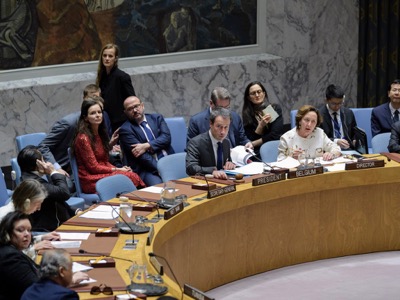
On February 12, the UN Security Council passed Resolution 2510 endorsing the results of the Berlin Conference on Libya. The Russian delegation abstained from voting because the document’s British authors declined to take into consideration certain aspects that Moscow views as principled.
During the discussion on the draft resolution, Russian representatives adhered to a clear and consistent position, formalised in the UN Security Council’s earlier resolutions on Libya. This implied the fundamental principle of the Libyan peace settlement under which only the Libyans themselves can determine the future of their country, and this principle should apply to all recommendations for the Libyan parties, including those by the UN Security Council. It should be recalled that the Russian side’s decision to support the concluding provisions of the Berlin summit was motivated precisely by the need for subsequently coordinating them with the Libyans.
The Russian side insistently persuaded its Security Council colleagues not to approve the resolution posthaste and to demand that the Libyan parties agree with the conclusions of the Berlin conference. Other Council members, who were not invited to Berlin, noted the principled importance of this move. The Libyans have just launched the dialogue, including within the framework of the 5+5 Libyan Joint Military Committee. The formulation of effective ceasefire parameters, mentioned in the Berlin communique and which could be formalised by the UN Security Council resolution, should become the result of its work.
However, the British authors decided to take a shortcut and to pass the UN Security Council resolution more quickly, apparently without thinking whether it would be viable or not. They rejected our constructive proposals, and the approved resolution therefore contains many unbalanced provisions and also envisages possible sanctions for failure to fulfil so far non-existent aspects and urges the Secretary-General to submit his recommendations on this score. For example, this concerns the ceasefire agreement that has not yet been reached.
We doubt that such ultimatums and unilateral approaches will help advance the Libyan peace settlement. The insistent promotion of plans, drafted without any consideration for the Libyans’ opinion, evokes even greater doubts.
Russia will continue to work with all the key Libyan players and will motivate them to achieve a permanent truce as soon as possible and to discuss the entire range of matters linked with restoring the unity of the Libyan state and normalising life in the country.












Stay In Touch
Follow us on social networks
Subscribe to weekly newsletter